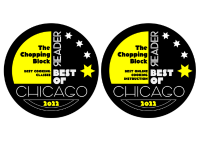One of the highlights from my holidays was a meal I made with a standing, bone-in, rib roast with a sea salt and black pepper crust. I got this beautiful cut of meat from my new favorite butcher shop located in Oak Park, Illinois: Carnivore.
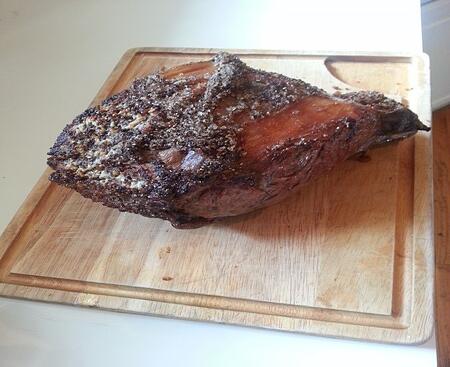
After we had demolished the lovely roast, I had some wonderful bones left over, and I couldn’t let them go to waste. So, I made a batch of brown beef stock.
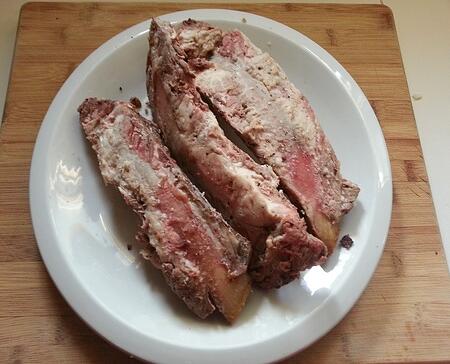
A high quality brown stock is the basis for the mother sauce, Espagnole. The key is the color that you achieve on the bones and mirepoix. Mirepoix is by definition 2 parts onion to 1 part each of celery and carrots. For my mirepoix, I decided to use purple carrots for their color and extra nutrient density and a parsnip for its wonderful earthy flavor.
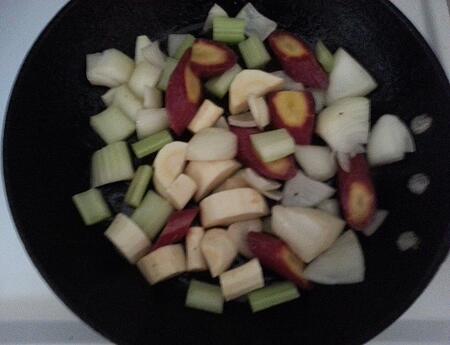
Even though these bones came from a roasted piece of meat, I want to make sure that I have adequately caramelized all the sides by searing them in hot oil which will lead to a richer stock and a deeper color.
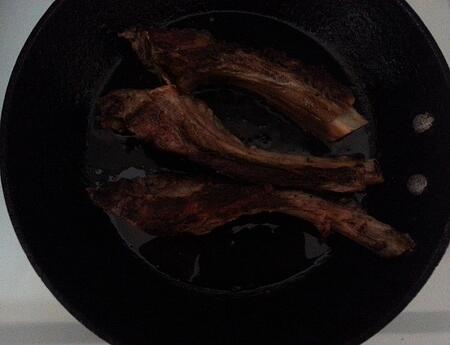
It is also crucial to caramelize the mirepoix, making sure not to burn it, but cooked to a deep brown color.
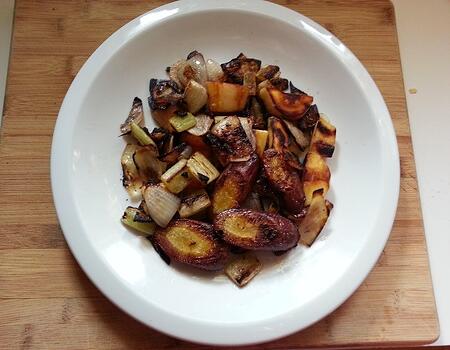
At this point, I removed the mirepoix, reserving for later and added tomato paste to the pan and cooked it for about 2 minutes until the deep red color turned a more rusty color.
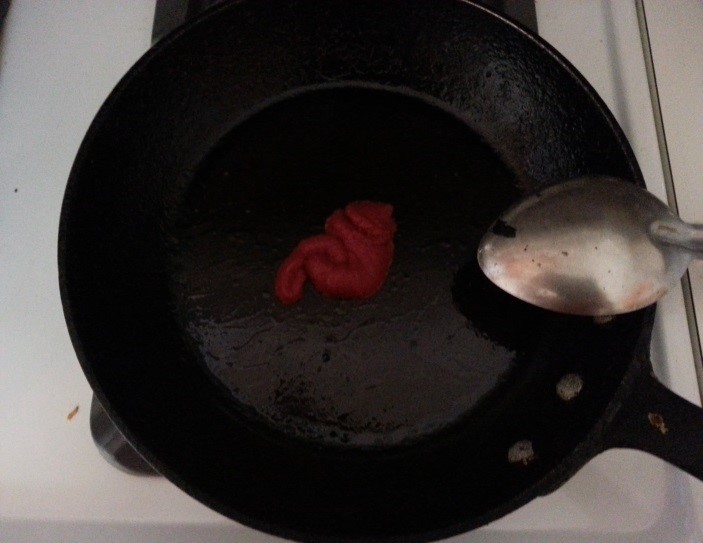
Deglaze the pan with water, making sure to get all of the bits off the bottom of the pan. Those bits are called the “fond” which in French means foundation. Place the bones and deglazed mixture in a Dutch oven and cover with enough water to cover the bones by at least 2 inches.
Bring those items just to a boil and reduce the stock to a simmer. Consistently skim the stock and cook for the next 4-5 hours. Add water as needed. At this point, it's time to add the mirepoix and a bouquet garni. A bouquet garni is a bundle of fresh parsley, thyme, rosemary and bay leaves tied together with butcher’s twine. In this case, I like to add extra flavor by placing the herbs inside two ribs of celery and tying them up. I find that by using the ribs it makes for easier straining. Another option would be to use a sachet d’epices that uses fine cheesecloth. Put the garlic, parsley, thyme, bay leaves and cracked black peppercorns inside and tie them with butcher’s twine.
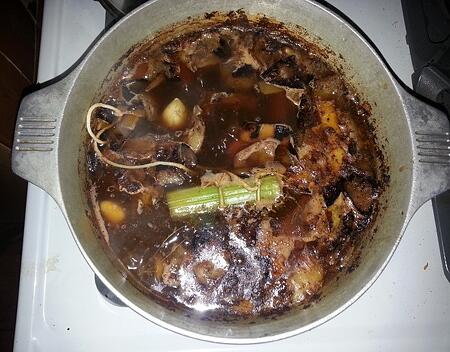
Bring the stock to a boil and then to a simmer once again. Add water as needed and cook for another hour. Carefully strain the stock through a fine strainer or fine cheesecloth into a clean pot, chill quickly and then refrigerate.
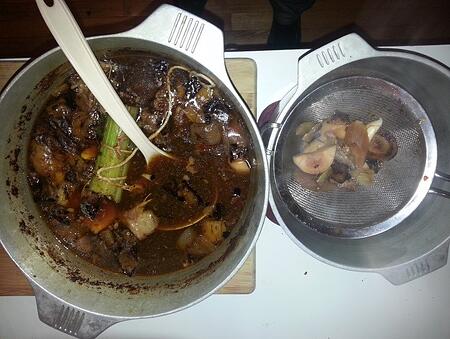
A well-made stock should not be cloudy, but have a definite clarity. It should also have a great nose and clean, sweet taste.
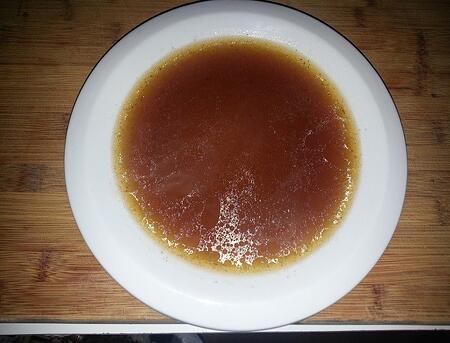
The stock will last about a week in the refrigerator and freezes beautifully.
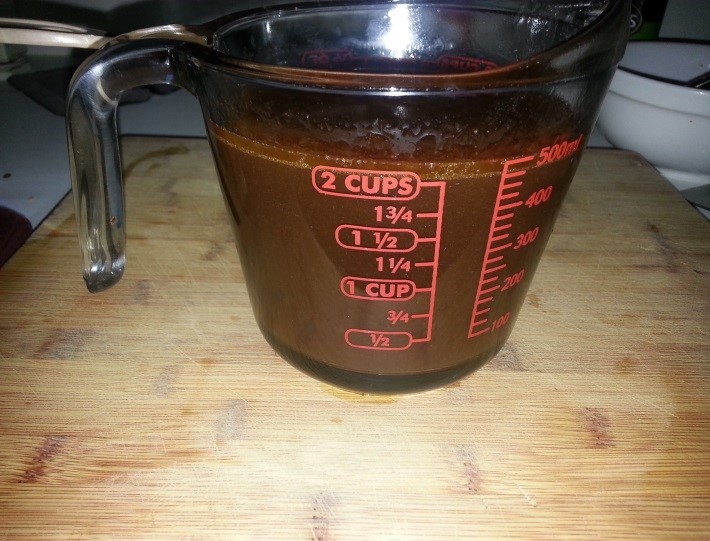
Next month, I'll cover the mother sauce Espagnole and this Back to Basics series will finish with Demi-glace in March.
What else would you like to learn in my Back to Basics? Submit your ideas here.
For another chef's take on beef stock, watch Shelley's video.








